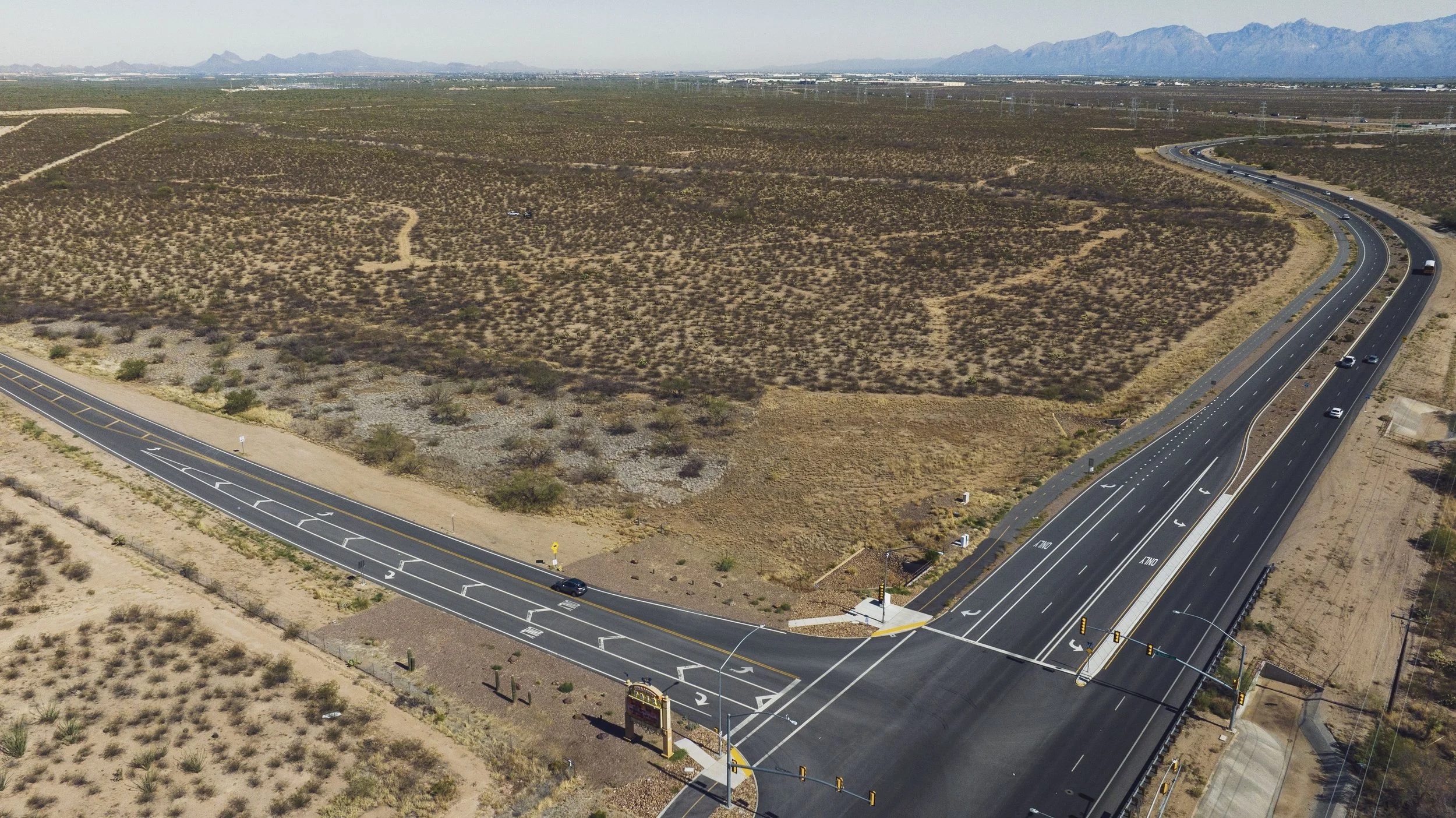Open Letter Project Blue
Project Blue Proposed Site - Eliseu Cavalcante
Dear Mayor Romero and Members of the Tucson City Council,
I am writing as a Tucson resident deeply concerned about the proposed Project Blue data center and the direction our city appears to be taking on this issue. At the recent public meeting, it felt as though many officials had already made up their minds in support of the project, leaving community concerns about water, energy, and environmental impact unheard. I hope this letter encourages a pause—a chance to weigh what’s really at stake for Tucson’s future.
Project Blue would consume roughly 620 million gallons of water each year. While developers promise that this will come from reclaimed water and that offsets will make the project “net water positive,” details remain vague. Tucson’s reclaimed water supply is already 96 percent allocated, and this project alone would take another 6 percent—before any expansion. Offsets only work if they are local, transparent, and verifiable. Anything less is just public relations.
At the recent meeting, the presentation came entirely from Project Blue representatives and city staff. No independent environmental experts, hydrologists, or community advocates were invited to speak. Without that balance, it’s difficult for the public to fully understand the trade‑offs we’re being asked to accept. We were shown only one side of the coin—the side that benefits the developers.
Beyond water, there is the land itself. The 290-acre site is not an empty lot; it is a living desert. Saguaros, mesquite, and creosote that have stood for decades—or centuries—would be bulldozed. Wildlife would be displaced into an already fragmented habitat. In a city that celebrates its desert identity, can we justify erasing such a landscape for a project whose long-term benefit to residents remains unclear?
And water is only part of the story. According to the Arizona Daily Star, Tucson Electric Power may need to build a new natural gas plant to serve a second Project Blue complex. This means locking our community into more fossil fuel infrastructure at a time when we are working hard to meet climate goals and transition to cleaner energy.
Much of the support for Project Blue rests on promises of jobs. But jobs, in themselves, aren’t proof of progress—especially when they come at the cost of our water and energy future. Consider Phoenix’s CityNorth mixed-use development: a project many criticized as another sprawling mall. Even that plan, problematic in its own right, was projected to generate 16,000 construction jobs and 19,000 permanent operational jobs across retail, hospitality, office spaces, and services.
Project Blue, by comparison, will create far fewer permanent positions—just a few dozen specialized roles after construction ends, many of which may not even employ local workers. It’s telling when even a mall, with all its own controversies, manages to offer more tangible community employment than a project we’re being asked to sacrifice our desert and water supply for. Meanwhile, we risk losing resources—like water, energy, and open space—that countless other sectors, from tourism to local agriculture, depend on to survive.
If one of the true goals is job creation, why limit ourselves to the first proposal that shows up? Tucson deserves leaders who seek out the best opportunities, not just react to the ones placed in front of them. Around the world, private investors are backing transformative green projects—solar manufacturing hubs, desert reforestation initiatives, sustainable agriculture innovations—that create thousands of local jobs while building lasting resilience. These are the kinds of investments that match Tucson’s identity and our responsibility to future generations. Instead of asking “Should we accept this?” we should be asking, “What future do we want to create?” Right now, it feels as if we’re not thinking big enough—or far enough ahead.
Tucson has worked for decades to build a reputation as a leader in conservation. Do we want to undo that in one decision? I urge you to vote no to this project. Demand independent studies on water and energy impacts. Make those findings public. Ensure any offsets are real and local. And most of all, broaden the vision—consider what sustainable job creation could look like if we invested in projects that serve both people and the planet. Tucson deserves nothing less.
